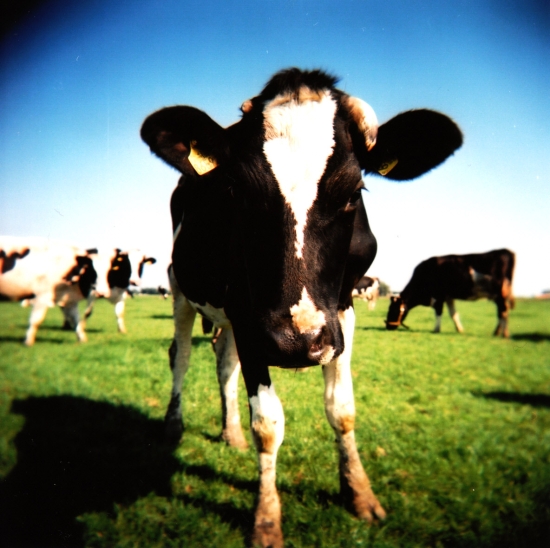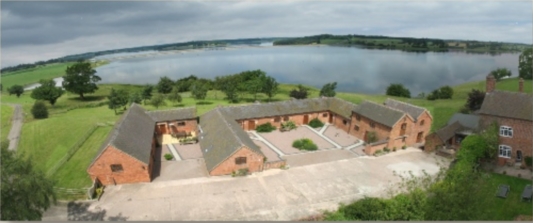Last week a report from the Royal Institution of Chartered Surveyors (RICS) revealed that prices for farmland reached record levels during the second half of 2012. The RICS/RAC Rural Land Market Survey records the average price for farmland in England and Wales as £6,783 per acre although it is noted that this can vary greatly even locally.

The survey reveals that commercial farmland with as little residential property as possible is realising the highest prices. However, spokesperson Sue Steer adds that demand for residential farmland is also beginning to pick up as it is seen as a ‘safe haven’ during periods of economic uncertainty.
Clearly then, farmland is viewed as a valuable asset and yet, at the same time, farmer’s leaders are keen to draw the public’s attention to the difficulties facing the industry. We spoke to a young Staffordshire farmer to gauge current opinion.
Alex Brown’s family have been farming at St Stephens Hill Farm on the banks of Blithfield Reservoir for approximately 45 years. Including family members, six people are employed to work 480 acres of organic dairy land.
Alex confirms that there is strong demand for Staffordshire farmland and is confident about the future of the industry. However, he highlights a number of issues facing farmers today and offers his solutions to these problems.
Alex is quick to raise the issue of milk prices that grabbed the headlines last year following a series of demonstrations and protests by dairy farmers. He claims that a lot of the major supermarkets are actually paying less than the cost of production resulting in farmers selling their milk at a loss. In order to address this situation Alex proposes an agreement between supermarkets and farmers of a standard percentage over the cost of production.
The rising cost of fuel is also an issue that has attracted a lot of media attention as both motorists and businesses struggle to meet the prices at the pumps. Naturally every rise in the cost of fuel increases the overheads for farmers and Alex’s proposal is a simple and effective solution to the problem. He suggests that farmers should work together co-operatively and reduce the cost by buying fuel in bulk.
The poor weather we all experienced last summer hit dairy farmers particularly hard, with poor harvests leading to an increase in cattle food prices. In these situations Alex believes it would help if organic farmers were allowed to temporarily use non-organic produce from abroad to alleviate the difficulties.
The culling of badgers is an issue that sharply divides opinion but Alex insists that TB in cattle is a major problem that is perhaps not fully understood by the wider public. This prevents farmers selling herds anywhere apart from ‘Red Markets’ where cattle go for slaughter. As a result he supports a regulated badger cull but also calls for more funding for vaccine research.

St Stephens Hill Farm
As we reported recently, the route of the proposed high speed rail link runs right through acres of Staffordshire farmland and the impact of this is raising concerns. The track will be close to St Stephens Hill Farm but will have a greater impact on neighbouring farmland. When asked if he believed the government’s compensation scheme was adequate Alex was unequivocal in his response.
“No. It’s unfair, complicated and the way it is being conducted could be perceived as bullying tactics,” he said.
Over recent years many farmers have embraced diversification in order to make the most of their farmland and generate additional income. St Stephens Hill Farm is one of those to maximise its assets in this way. Alex explains that they have already converted farm buildings and land for commercial use as holiday cottages (above) and horse livery and it is something they are keen to develop.
“The holiday cottages provide a good income over the summer months and with wedding events out of season.
“We intend to start producing organic ice cream at the beginning of next year and to expand further into the tourism industry over the next seven years,” he said.
According to 54 per cent of RICS surveyors, continuing high levels of demand and a downturn in availability will see prices rising to new highs over the course of 2013. This ensures that Staffordshire farmland will remain a valuable asset and promises a bright future for the county’s young farmers like Alex Brown.
Previous Post
Beanz Meanz Berkshire Hathaway
No related posts found for this post.